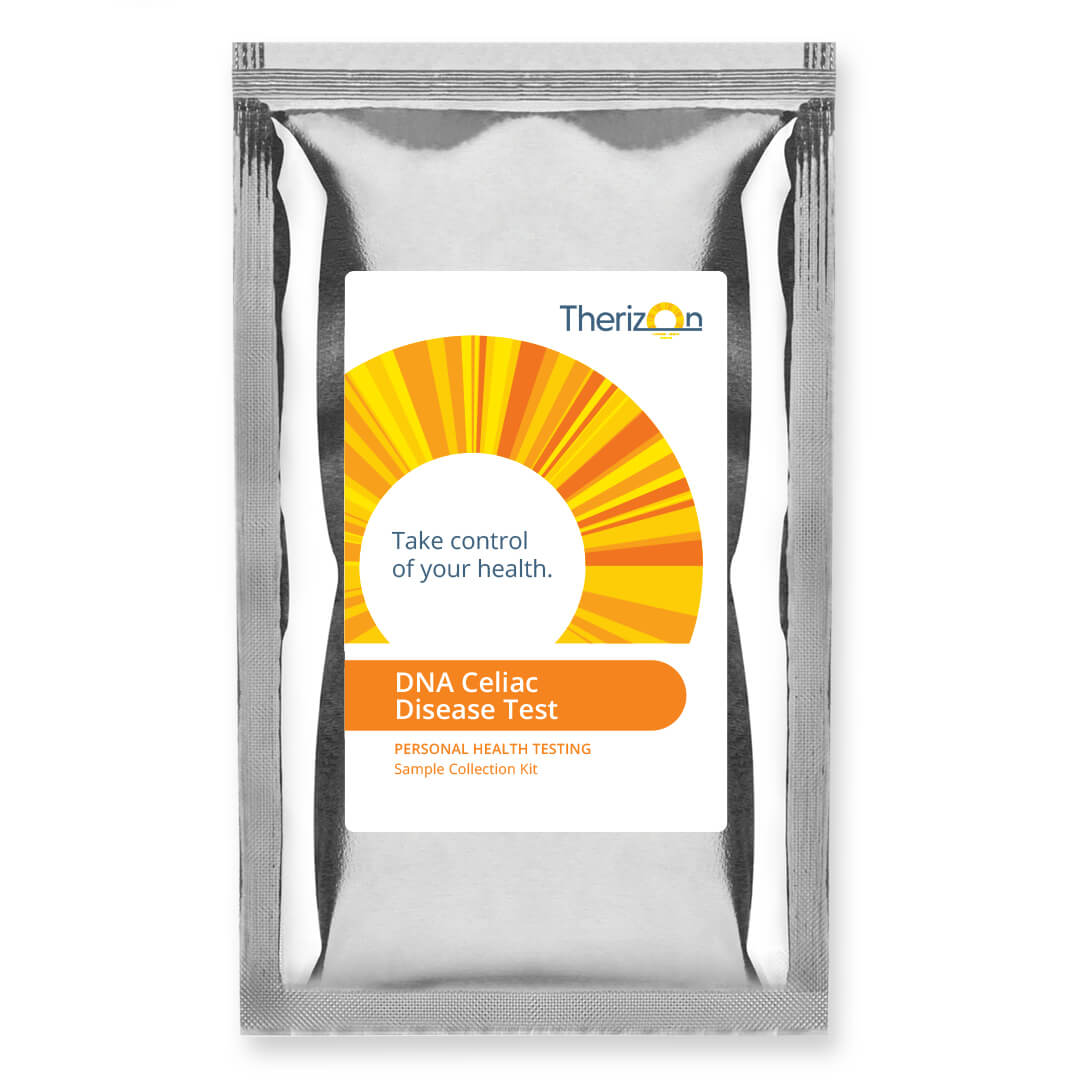| Patient Genotype (celiac-associated alleles present) | Celiac Disease Risk |
| DQ2 and DQ8 | 1:7 |
| DQ2 and Homozygous HLA-DQB1*02 | 1:10 |
| DQ2 and DQ2 | 1:10 |
| DQ8 and DQ8 | 1:12 |
| DQ8 and HLA-DQB1*02 | 1:24 |
| Homozygous HLA-DQB1*02 | 1:26 |
| DQ2 | 1:35 |
| DQ8 | 1:89 |
| Heterozygous HLA-DQB1*02 | 1:210 |
| HLA-DQA1*05 | 1:1842 |
| No HLA celiac-associated alleles detected | Not at risk of developing celiac disease, less than 1:2518 |
Celiac Disease DNA Test
Find out whether you carry any genes associated with celiac disease.
- A negative result rules out celiac disease for life
- Painless buccal (mouth) swab sample collection
- All tests are run 2x for absolute accuracy
- Gluten ingestion is not required for this test
- Quickly collect samples in the privacy of your own home
- 24/7 online test status check
- No age limit
- State-of-the-art accredited testing laboratory
$249.00
Out of stock
Detailed Description
Could your genes put you at risk of celiac disease?
Celiac disease is an autoimmune disorder triggered by the ingestion of gluten. Gluten is found in wheat products, rye, barley, malt and brewer’s yeast. When a celiac-affected individual consumes gluten, their immune system reacts aberrantly, causing severe damage to the lining of the small intestine, and a variety of health complications.
Almost all celiac-affected individuals have at least one genetic risk allele in their HLA genes. This genetic analysis conclusively determines whether you carry any of the known celiac-associated alleles. A negative result will allow you to rule out celiac disease for life.
The Genetics
DNA testing for celiac disease
A simple DNA sequencing test can be completed to find out which alleles of HLA-DQA1 and HLA-DQB1 an individual has. This sequencing reaction identifies nucleotide changes that occur in the three celiac-associated alleles (HLA-DQA1*05, HLA-DQB1*02, HLA-DQB1*0302). Combinations of these celiac-associated alleles can also form heterodimers known as DQ2 and DQ8. The presence or absence of these celiac-associated alleles gives an indication of the risk of gluten sensitivity and celiac disease. If none of these celiac-associated alleles are present, the risk of celiac disease is extremely low. Find out if you are at risk and whether a gluten-free diet is necessary.

Celiac disease is an autoimmune disorder where the immune system attacks and destroys healthy cells by mistake. Affected individuals have an extreme sensitivity to gluten, a protein found in wheat, barley and oats. When a celiac-affected individual consumes gluten, it is recognized by the immune system as a foreign substance. This initiates a cascade of events in the immune system. These events signal white blood cells (known as T-cells) to cause inflammation, resulting in the death of cells in the intestinal lining, and interfering with the normal absorption of nutrients.
Celiac disease is hard to diagnose because it can include a wide variety of symptoms both digestive and non-digestive, and some celiac-affected individuals have no digestive symptoms at all.
The digestive symptoms commonly include:
- Flatulence and bloating
- Constipation and/or diarrhea
- Appetite changes
- Pale or bloody stools
- Nausea and vomiting
Other symptoms can include:
- Fatigue and migraines
- Irritability
- Depression and anxiety
- Muscle cramps and joint pain
- Growth delays
- Mouth ulcers and skin rashes
- Hair loss
- Anemia
- Seizures
How it works
Step 1: Order test kit online
Step 2: Collect DNA sample using a painless mouth swab, and mail to the lab in the provided return envelope
Step 3: Receive your results online
